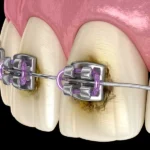Best Wisdom Teeth Removal Anesthesia Options

Best Wisdom Teeth Removal Anesthesia Options
Having wisdom teeth removed is a common procedure that can greatly improve your long‑term oral health. Whether you need an extraction because your mouth doesn’t have space for the teeth to fully emerge, or because an impacted tooth is causing pain or damage, understanding your anesthesia options will help you feel more relaxed and in control. Modern sedation dentistry makes wisdom tooth removal a comfortable experience for most patients. This article explains the main types of anesthesia available, how to choose the right one for you, and why working with a qualified oral surgery team in Houston is essential.
Why Anesthesia Matters for Wisdom Tooth Removal
Many people feel anxious about surgery, especially when it involves dental work. Choosing the right anesthesia can minimize discomfort, reduce fear, and even make the procedure feel like a breeze. Anesthesia isn’t one‑size‑fits‑all; your oral surgeon will help you decide what level of sedation is appropriate based on your health history, the complexity of the extraction, and your personal comfort level. The ultimate goal is a pain‑free, stress‑free procedure that preserves your oral health and overall well‑being.
Ready for a comfortable, pain‑free extraction?
Book your wisdom tooth consultation now
If you’re considering wisdom tooth removal in Houston, Texas and want to explore your anesthesia options, schedule a consultation with our experienced oral surgery team today. We’ll discuss your concerns, answer your questions, and recommend the best anesthesia approach for your situation. Booking now ensures you get a timely appointment and expert guidance from the start.
Three Main Wisdom Teeth Removal Anesthesia Options
Below are the most common types of anesthesia used during wisdom tooth surgery, along with the benefits of each approach:
- Local Anesthesia – Often used for simple extractions, local anesthesia numbs only the tooth and surrounding gum tissue. You’ll remain fully awake but won’t feel pain in the area. This is ideal for patients who are comfortable in the dental chair and only need minor work.
- IV Sedation (Moderate/Deep Sedation) – Administered through an intravenous line, this form of sedation puts you into a semi‑conscious or deeply relaxed state. You may remain aware enough to respond to gentle prompts, but you’ll have little or no memory of the procedure. IV sedation is an excellent choice for patients with dental anxiety or for more complex extractions, as it offers significant pain control and relaxation.
- General Anesthesia – This is the highest level of sedation and is typically reserved for complicated surgical cases or patients who require full unconsciousness. Under general anesthesia, you’ll be completely asleep and monitored closely by an anesthesiologist or dental anesthetist. It’s safe, effective, and ensures you feel absolutely nothing during the procedure.
How to Choose the Right Anesthesia
Selecting the best anesthesia depends on a few key factors:
- Procedure Complexity – Simple extractions may only require local anesthesia, while impacted teeth or multiple extractions often call for IV sedation or general anesthesia.
- Anxiety Level – If dental visits make you nervous, moderate or deep sedation can help you remain calm and comfortable. Many patients find IV sedation alleviates anxiety so thoroughly that they don’t recall the procedure.
- Health and Medical History – Certain medical conditions, medications, or allergies can influence which anesthesia method is safest. Always discuss your full medical history with your surgeon.
- Recovery Preferences – Local anesthesia allows you to drive yourself home, while sedation or general anesthesia requires a chaperone and a longer recovery period. Consider how much downtime you’re willing to schedule.
Managing Stress and Pain Before and After Surgery
Feeling nervous about dental surgery is normal. Here are a few ways to reduce stress and support a smooth recovery:
- Open Communication – Talk openly with your surgeon about your fears and any previous experiences with anesthesia. They can tailor sedation to your needs and reassure you about safety protocols.
- Sedation With Nitrous Oxide (Laughing Gas) – Some patients choose nitrous oxide combined with local anesthesia for mild relaxation. The effects wear off quickly, so you can typically drive yourself home afterward.
- Post‑Procedure Pain Control – Your care team will provide pain medication and recovery instructions. Following these closely helps minimize swelling and discomfort.
- Relaxation Techniques – Deep breathing, calming music, or guided meditation before your appointment can ease anxiety. Some patients bring earbuds to listen to soothing playlists before or even during treatment.
Trust Your Oral Surgery Team
A successful wisdom tooth extraction requires skill and experience. Look for an oral surgeon who is board‑certified, has extensive surgical experience, and offers a range of anesthesia options. Testimonials and reviews from past patients can also provide reassurance; many report being pleasantly surprised at how comfortable the procedure was. Your safety and comfort should always be your surgeon’s top priority.
Additional Resources
For a detailed breakdown of what wisdom tooth removal may cost in our area, see our Wisdom Tooth Removal Cost guide. You can also read our Complete Guide to Wisdom Tooth Removal for step‑by‑step information about the extraction process.
Conclusion: Take the Next Step Toward a Healthy, Pain‑Free Smile
Wisdom tooth removal doesn’t have to be a frightening experience. With modern anesthesia options—including local anesthesia, IV sedation, and general anesthesia—you can undergo the procedure without pain or distress. Remember to discuss your concerns and medical history with your oral surgeon so they can recommend the best approach for you.
Don’t wait to address problematic wisdom teeth. A consultation with our Houston‑based team will give you the clarity and confidence you need to move forward. Reach out today to schedule an appointment and begin your journey toward a healthier, more comfortable smile.





